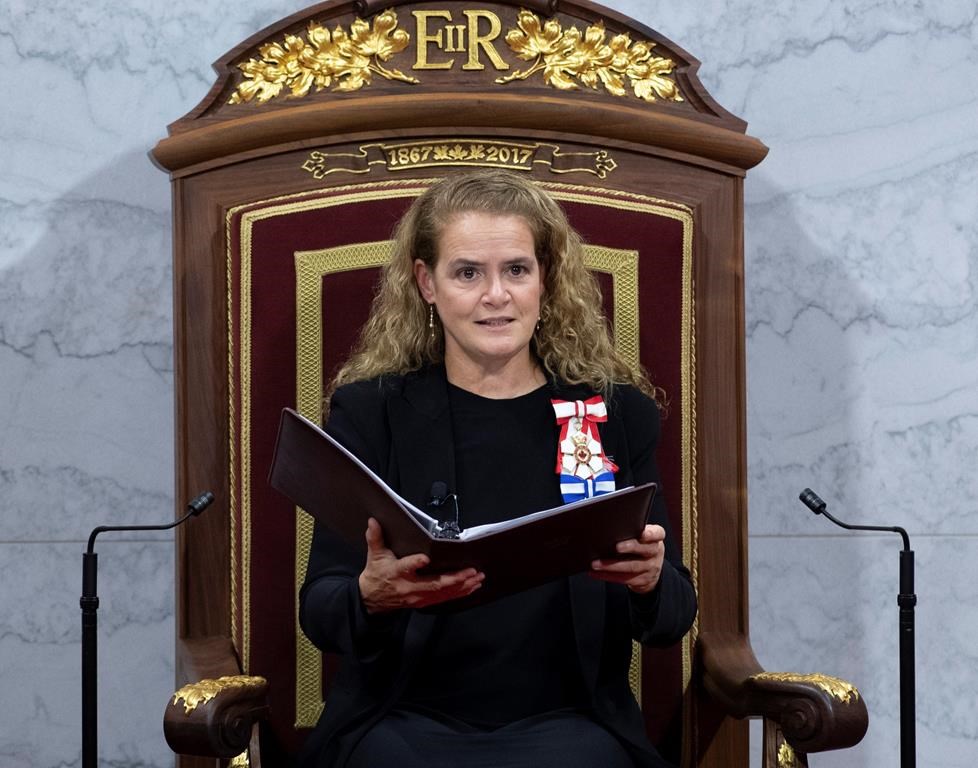Scuttlebutt in Ottawa is that Justin Trudeau has been considering replacing Julie Payette, who only two years ago was the prime minister’s handpicked choice as Governor General.

I have no desire to see Payette forced to leave her post prematurely, particularly as the government’s motivation may be to divert attention from the WE scandal. If a problem exists, it probably says far more about the prime minister’s judgement in choosing Payette than it does about her.
Despite the much-talked-about perquisites, including a chance to travel widely representing Canada and live in a mansion, being Governor General is a thankless job that seems best suited to people with outstanding people skills.
I had dinner with Payette and a few others not long before she was offered the GG’s job. I found her to be as impressive as her remarkable résumé. She was amusing and, unsurprisingly, given that she had been an astronaut, passionately interested in space.
Best of all, I found Payette to be a patient explainer of complex scientific subjects. She was able to make even this Luddite understand some of the work she did before being asked to serve as the Queen’s representative in Canada.
Since Payette was appointed 25 months ago, it has often been said around Ottawa that the next Governor General must be an Indigenous person. I would much rather that the task was to identify the person best able to do the job.
Nevertheless, there is an outstanding potential Governor General who, as it happens, is Indigenous. He is Maj.-Gen. Jocelyn Paul, currently the most senior First Nations member in the Canadian Armed Forces and a member of the Huron-Wendat Nation.
Joe Paul, as he is usually called, has deep family ties on that reserve, which is surrounded by Quebec City. He is married to an Innu (Montagnais) from the Betsiamites First Nation.

A career soldier and infantryman who can switch easily between English and French, Paul is currently the director-general for international security policy. Until last year he commanded the Canadian Army’s largest division from its headquarters in Ontario. Before that, he was the chief of staff at Canadian Forces Intelligence Command and served in the Privy Council Office.
Paul is a member of the Royal 22nd Regiment — the Van Doos. I got to know him in 2009 when he was a lieutenant colonel and commander of Canada’s battle group in Kandahar. Affable, thoughtful and revered by those who served in Afghanistan with him, Paul went out almost every day with his troops on dangerous combat patrols and then spent his nights at his makeshift plywood headquarters trying to figure out how to improve the lives of Afghans and how to fight the Taliban in what was regarded as their spiritual homeland.

Get breaking National news
But Paul has never forgotten his Indigenous roots. In an interview with a military public affairs officer last year he spoke with pride of his heritage. At Wendake, elders told him “about our identity and the way other cultures view their respective identities.”
- 3 in 10 Albertans would vote for independence — but only half committed to separating: poll
- Much of Canada faces extreme cold, heavy snow in latest winter blast
- China’s envoy says Beijing, Ottawa ‘eye to eye’ on supporting Greenland
- Intense cold forces flight delays, cancellations at Canadian airports
“I learned that there are multiple layers of identity for all people, but in our community, the Aboriginal identity was always first,” he said.
“My fixation on this understanding of identity all goes back to my youth. I was always intrigued by our heritage, our community and understanding culture. Some elders still have this knowledge but we need to get youth speaking to them.”
Though the general was speaking about his personal experience, what he had to say could be regarded as a broad description of some of the qualities that a Governor General should have.
“Being Canadians is our common denominator,” he said. “Many of us see ourselves as Canadians, others may feel like they have a dual identity such as Canadians of Scottish descent. The important point is that human beings have multiple layers that are deeply rooted in our personality and education. It is an extremely personal thing.
“We need to understand the layers of all people with whom we become involved. Moreover, to know where we are going, we must look to the past. To know who we are, we must understand the layers of our identity.”

Paul tried to impart this cultural sensitivity to his soldiers before they left Canada.
“If we didn’t understand the complexity of Afghanistan and Kandahar, the numerous factors at play including identity, force would be misapplied, so it all came down to education,” the 50-year old Quebecer said.
Not to be a downer, but I asked Paul a few years ago whether he was interested in becoming the GG. He looked at me ruefully and replied that he was not. All that he aspired to be in his working life, he said, was a soldier.
Paul may get his wish for the time being. He is so highly regarded that he may be a top candidate to become the chief of defence — not this fall when the government chooses a new commander of the Canadian Forces, but when the position next becomes available in a few years’ time.
Whether Paul eventually becomes Canada’s top general, the Governor General or does something else, he has already led a uniquely inspiring life.
Matthew Fisher is an international affairs columnist and foreign correspondent who has worked abroad for 35 years. You can follow him on Twitter at @mfisheroverseas







Comments